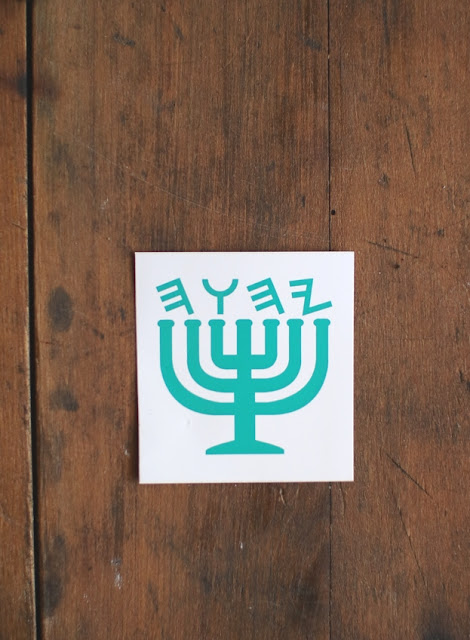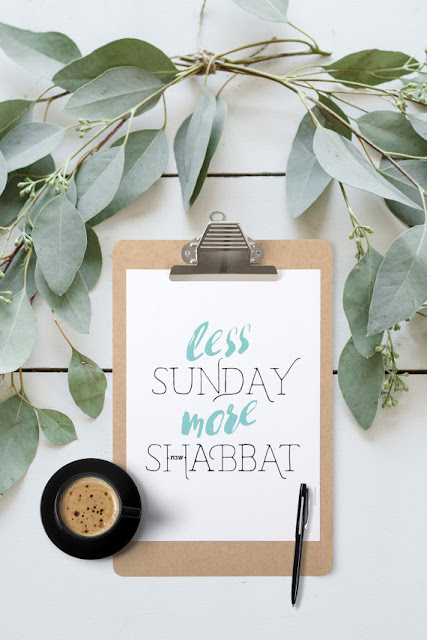Chag sameach! I hope you are enjoying this special and set apart time of year during the festival of Unleavened Bread, when we celebrate the life, death, and resurrection of the Messiah. All of the festivals of YHWH must have been significant to Yahusha, and so many of his words recorded in Scripture were spoken during this time. Having some idea of the setting and context for his words can transform our understanding of them. Much weight and significance is added to his words when we realize he spoke them at the Passover table keeping YHWH's instructions from Leviticus 23. Here are a few things he said during this time.
Things the Messiah Said at Passover:
"I am the way, the truth, and the life. No one comes to the Father except through me." -John 14:6
Many people who have this verse memorized overlook an obvious implication of it. The way is literally seated at the Passover table when he said this. If you want to get to the Messiah and the Father, you might think about heading to Passover.
"Whoever trusts in me does what I do and will even do greater works." -John 14:12
The Messiah clearly expects his followers to have the same lifestyle as he did. The feast days and honoring Shabbat are a great place so start to live like him. This verse also tells us that once we are living like he did we will see even greater things happen in and through us.
"If you love me, keep my commands." -John 14:15
If you love the Messiah his desire is that you would be obedient to his instructions. Picture him seated with matzah and wine, keeping the set apart time that was also celebrated by Abraham and Moses, while he speaks the word of YHWH to those at the table, and it's easier to remember that some of his commands are to celebrate his festivals.
"I am the vine, you are the branches." -John 15:5
This analogy is probably the parable that the Messiah spent the most time explaining. And it's significant that the chose to talk about pruning - when his Father, the gardener, cuts off part of a healthy tree in order that it can grow more - at Passover. While we are rooted in Yahusha, he expects his people to grow. Growth looks different each season, and for many of us significant growth is pruning off man made holidays and choosing YHWH's instead.
"Watch and pray." -Matthew 26:41
Yahusha wants us to watch and pray at this time of year but if we aren't observing his holy days how can we do that?
"If the world hates you, know that it hated me before you. If you were of the world, the world would love its own. But because you are not of the world, but I chose you out of the world, for that reason the world hates you." -John 15:18-19
The Messiah shares at Passover that he does not expect his followers to fit in with the world. And he's okay with that. He understood completely what it was like to be hated for the things he said and the lifestyle he chose to live. So if you're keeping Passover instead of the mainstream Easter holiday of course people are going to be upset, but it's really not about you; it's about them rejecting the ways of YHWH.
"In the world you have pressure, but take courage, I have overcome the world." -John 16:33
Passover is a beautiful time to remember that the Messiah overcame all the difficulties and injustices that we face.
"This is my body which is given for you, do this in remembrance of me." -Luke 22:19
Do what to remember the Messiah? Eat bread at Passover.
"Go and prepare the Passover for us." -Luke 22:8
Here is the Messiah literally commanding his followers to take time to celebrate Passover. This is absolutely still worth doing today.
"The spirit is willing but the flesh is weak." -Matthew 26:41
This verse describes how many of us as believers genuinely want to follow and serve the Messiah, but our flesh often is our biggest hurdle. The spirit is willing...but the flesh likes chocolate Easter rabbits. The spirit is willing...but the flesh has too many good Christmas memories to let go of. It takes intention and training to get your flesh under control of your spirit. Participating in YHWH's set apart times is an opportunity to strengthen your faith.
"You shall deny me three times." -Mark 14:30
Yahusha obviously knew what it was like to have people intentionally disassociate with him. When Peter denied him later that night, he wasn't just saying that he didn't know Yahusha. He was saying that he hadn't just partook in the Passover meal with him. How many people do you know that claim to love and honor the Messiah but adamantly deny his invitation to the Passover celebration? Let's not deny that as the Passover lamb, the feasts of YHWH are very near to the Messiah's heart.
"You do not know what I am doing now, but you shall know after this." -John 13:7
I love this verse because it tells me that I don't have to have all of the instructions figured out or to be able to fully see how YHWH is working in my life. Eventually all of these things will become clear but in the meantime all we have to do is walk in faith. I love the promise that even if keeping YHWH's feasts, honoring Shabbat, and so on don't make sense right now we will be able to see the Messiah in them someday.
"You should do as I have done." -John 13:15
Don't miss that the Messiah challenged us to live the way he did during one of YHWH's set apart times. Yahusha kept the feasts and we should too.















































